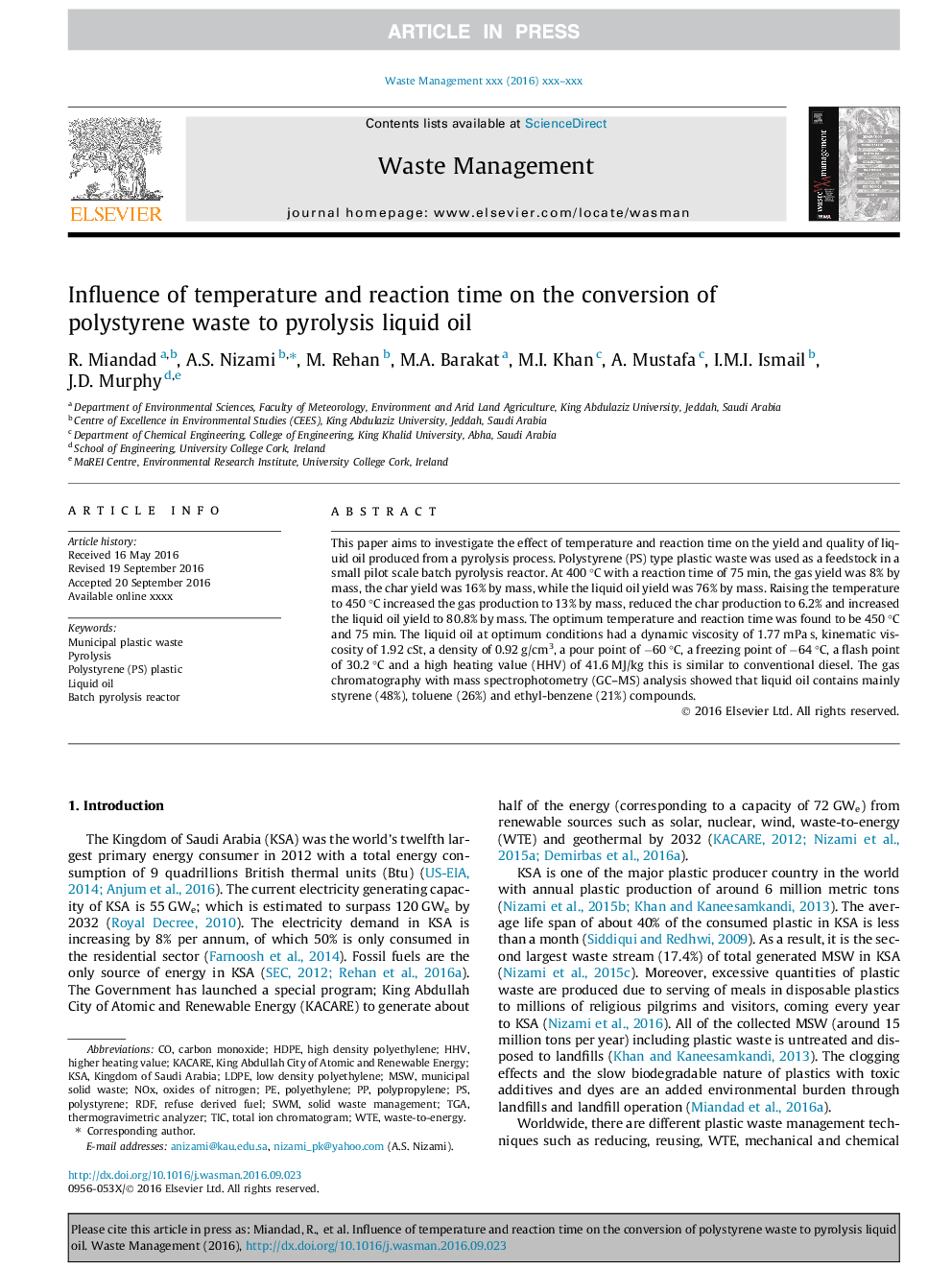| Article ID | Journal | Published Year | Pages | File Type |
|---|---|---|---|---|
| 5757095 | Waste Management | 2016 | 10 Pages |
Abstract
This paper aims to investigate the effect of temperature and reaction time on the yield and quality of liquid oil produced from a pyrolysis process. Polystyrene (PS) type plastic waste was used as a feedstock in a small pilot scale batch pyrolysis reactor. At 400 °C with a reaction time of 75 min, the gas yield was 8% by mass, the char yield was 16% by mass, while the liquid oil yield was 76% by mass. Raising the temperature to 450 °C increased the gas production to 13% by mass, reduced the char production to 6.2% and increased the liquid oil yield to 80.8% by mass. The optimum temperature and reaction time was found to be 450 °C and 75 min. The liquid oil at optimum conditions had a dynamic viscosity of 1.77 mPa s, kinematic viscosity of 1.92 cSt, a density of 0.92 g/cm3, a pour point of â60 °C, a freezing point of â64 °C, a flash point of 30.2 °C and a high heating value (HHV) of 41.6 MJ/kg this is similar to conventional diesel. The gas chromatography with mass spectrophotometry (GC-MS) analysis showed that liquid oil contains mainly styrene (48%), toluene (26%) and ethyl-benzene (21%) compounds.
Keywords
SWMHHVTICHDPERDFLDPEMSWKSATGAWTEWaste-to-energyNOxThermogravimetric analyzerOxides of nitrogenLiquid oilMunicipal solid wasteMunicipal plastic wasterefuse derived fuelSolid waste managementcarbon monoxideKingdom of Saudi ArabiaPolyethyleneHigh density polyethyleneLow density polyethylenePolypropylenePolystyrenePyrolysistotal ion chromatogramHigher heating value
Related Topics
Physical Sciences and Engineering
Earth and Planetary Sciences
Geotechnical Engineering and Engineering Geology
Authors
R. Miandad, A.S. Nizami, M. Rehan, M.A. Barakat, M.I. Khan, A. Mustafa, I.M.I. Ismail, J.D. Murphy,
